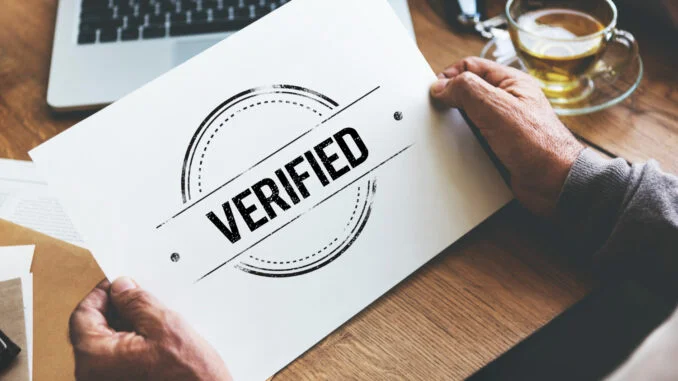How to Verify Land Ownership in Nigeria

Dreaming of owning a piece of land in Nigeria? Since your answer is yes, one of the key things to look out for is ensuring you verify land ownership before making any financial commitment.
Why is this important, you may ask? The demolition of certain buildings in Lekki Lagos shines the spotlight on major issues property owners have to contend with when trying to own land in Nigeria.
Ensuring you have a land title verification sorted is a no-brainer. Also verifying that the land is not encroaching on waterways, mapped out locations for roads, or government property will do you the world of good.
Thankfully, in this post, we will explore all you need to know about how to verify land ownership and ensure you have the right property authentication in Nigeria. So read this till the end.
General information, what to Know:
There are official means to explore to verify land ownership or undergo property authentication in Nigeria. You can also explore unofficial means, or as we say in Nigeria do your underground work.
You can start with the physical visit to conduct a familiarization process. You can ask questions around the neighborhood, and ask about the family selling if it’s an individual and not a company.
Meet the owner’s family and have genuine communication to know the details about the origin of the land and to ascertain the ownership. You can also seek evidence of existing documents like survey plans etc.
That said, let’s get to the official and most popular methods of verifying land ownership.
Important documents you need to Verify land ownership in Nigeria.
Original documents serve as a point of truth when it comes to land ownership. For land title verification or property authentication in Nigeria, you must have all these documents listed below.
Certificate of Occupancy (C of O): One of the main documents you can use to verify land ownership in Nigeria is the C of O. It is an official document issued by the government, which shows that a landed property belongs to an individual.
It carries all the necessary information about a property and the owner, including the terms and conditions for the land use.
Deed of Assignment: This is a must-have sales document when dealing with landed property. It is a document that indicates the transfer of land title from one party to another.
Survey Plan: This is another document that you can use for property authentication in Nigeria. This real estate document provides detailed information on the land from measurement to description. It also has the name of the landowner and location of the land which are key elements for land ownership verification.
Land Excision: Sometimes, the person selling the land could provide you with the land excision, but othertimes you have to obtain it yourself.
It is a necessary document that helps with the compensation for the original landowners. The government in some cases releases lands to indigenous people through land excision and compensation is always involved.
Receipt: Although this is not the most important document for property authentication in Nigeria, it is an essential document you need. This is because having a receipt in your real estate transactions can reveal the identity of the buyer and seller, providing evidence of ownership change.
Governor’s Consent: This is an official document from the government. It comes with stamps and signatures to certify that a piece of land belongs to an individual or company. Without this document, the land transaction can be deemed illegal.
It is important to know that all these documents are important to verify the validity of land ownership. Also, these documents are standalone documents, and cannot replace each other.
Get Legal Counsel
The importance of legal expertise when it comes to real estate or land dealings cannot be overemphasized.
The legal experts have all the information you need. For property authentication and land title verification, seeking legal advice from experienced and qualified attorneys in that field is crucial.
They can help you verify the authenticity of every document related to your land. They also nitpick every detail to verify the land’s authenticity and genuineness. The best part is most of them have access to government records to help you with the land title verification.
Confirm From Land Registry
Visiting a state land registry is another way of verifying land ownership in Nigeria. Every state and local government in Nigeria has a land registry office where all data regarding land or property transactions are stored.
But make no mistake, when visiting a land registry, ensure to visit the one closest to where the land or property is located. There you can access all the necessary information you need to verify land ownership. There you can also confirm the land title verification and ensure your land is not violating or encroaching on any government property.
Sometimes you might not get all the facts you need from the documents, but when you visit a local land registry, all the blind spots become visible.
Engage a Land Surveyor
On your own, you can never determine everything about a land or property, you need help. Hiring the service of a professional surveyor is vital for getting the right land.
There have been stories of people not using a surveyor only to end up realizing they’ve made a mistake purchasing that land.
To verify land ownership, hire a surveyor. They help with determining the legitimacy of the land. Some lands belong to the government, and you can’t own such property. Also, some lands are in water channels, and you can’t own that as well.
With the help of a surveyor, you go beyond determining whether the land belongs to the government or is in a water channel. You also get to know exactly what the boundary of your land is.
On your own, you can go to the surveyor general’s office for survey plans and records of that area. However, it is still advisable to get a professional surveyor to survey the land for you.
Conclusion:
There are many things to fact-check when you want to verify land ownership. We have highlighted some of the most obvious and important steps and processes involved.
Physical inspection, visiting the local registry, and having all the necessary documents is very important.
It is also essential to note that you might not be able to do all the tasks yourself, but you can employ the necessary resources and the right team to do that for the best result.

Need help? Book a call at a time that suits you
We have dedicated investment advisers and realtors to help you make informed decisions with your real estate investment.